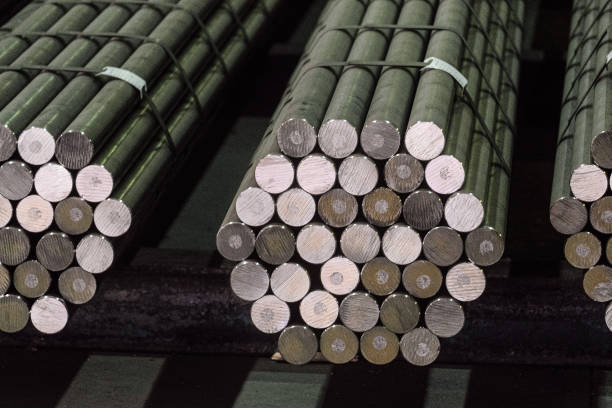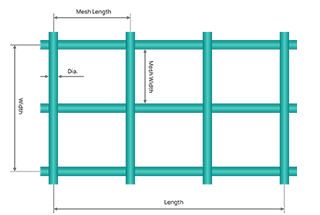
Ever wondered how to calculate the weight of a round bar with precision? Whether you’re in construction, manufacturing, or metalworking, knowing the exact weight of your materials is crucial. This article introduces a handy round bar weight calculator, explaining its importance and how it simplifies your work. You’ll discover the formula used and how to apply it, ensuring accuracy in your projects. Dive in to streamline your material measurements and enhance your efficiency.

A round bar, also known as a rod or cylindrical bar, is a versatile metal product with a solid, circular cross-section. Typically made of steel, round bars can also be manufactured from various other metals and alloys, including aluminum, brass, copper, and stainless steel. The defining characteristic of a round bar is its uniform diameter along its entire length.
Round bars are specified primarily by their diameter, usually expressed in millimeters or inches. For instance, a “50mm round bar” designates a metal bar with a consistent 50-millimeter diameter throughout its length. The length of the bar can vary based on manufacturing capabilities and application requirements.
These cylindrical products are widely used in numerous industrial applications, including:
Round bars are available in different grades and finishes, such as hot-rolled, cold-drawn, or turned and polished, each offering specific characteristics suited to different applications. The choice of material and finish depends on factors like strength requirements, corrosion resistance, and surface quality needed for the intended use.

The calculation formula for the weight of a round bar is:
Weight (kg/m) = π × (Diameter)² × 7.85 × 10^-3
Where:
This formula provides a more accurate calculation by incorporating the material density and the correct geometric relationship. For quick estimations, you can use the simplified version:
Weight (kg/m) ≈ Diameter² × 0.00617
Note that this simplified formula is an approximation and works best for steel round bars. For precise calculations or when working with different materials, use the complete formula and adjust the density value accordingly.
According to the “GB/T702-2008” standard for hot-rolled steel bars, the diameter of these bars ranges from 5.5mm to 310mm. The weight of hot-rolled round steel bars can be reported as either the actual weight or the theoretical weight.
The theoretical weight calculation formula for round steel bars is identical to that of wire rods, as both share the same cross-sectional shape and material density. The following round bar weight calculator allows you to determine the weight of a round bar based on its dimensions and material properties:
Key factors influencing round bar weight:
Practical applications:
When using this calculator, ensure to input accurate measurements and select the appropriate material density for precise results. For critical applications, always verify calculations with physical measurements or consult engineering specifications.
Related Tool: Steel Weight Calculator
| Diameter | Weight kg/m | Diameter | Weight kg/m |
| 5.5 | 0.186 | 13 | 1.04 |
| 6 | 0.222 | 14 | 1.21 |
| 6.5 | 0.26 | 15 | 1.39 |
| 7 | 0.302 | 16 | 1.58 |
| 8 | 0.395 | 17 | 1.78 |
| 9 | 0.499 | 18 | 2 |
| 10 | 0.617 | 19 | 2.23 |
| * 11 | 0.746 | 20 | 2.47 |
| 12 | 0.888 | 21 | 2.72 |
| 22 | 2.98 | 63 | 24.5 |
| * 23 | 3.26 | * 65 | 26 |
| 24 | 3.55 | * 68 | 28.5 |
| 25 | 3.85 | 70 | 30.2 |
| 26 | 4.17 | 75 | 34.7 |
| * 27 | 4.49 | 80 | 39.5 |
| 28 | 4.83 | 85 | 44.5 |
| * 29 | 5.18 | 90 | 49.9 |
| 30 | 5.55 | 95 | 55.6 |
| * 31 | 5.92 | 100 | 61.7 |
| 32 | 6.31 | 105 | 68 |
| * 33 | 6.71 | 110 | 74.6 |
| 34 | 7.13 | 115 | 81.5 |
| * 35 | 7.55 | 120 | 88.8 |
| 36 | 7.99 | 125 | 96.3 |
| 38 | 8.9 | 130 | 104 |
| 40 | 9.86 | 140 | 121 |
| 42 | 10.9 | 150 | 139 |
| 45 | 12.5 | 160 | 158 |
| 48 | 14.2 | 170 | 178 |
| 50 | 15.4 | 180 | 200 |
| 53 | 17.3 | 190 | 223 |
| * 55 | 18.6 | 200 | 247 |
| 56 | 19.3 | 220 | 298 |
| * 58 | 20.7 | 250 | 385 |
| 60 | 22.2 |








